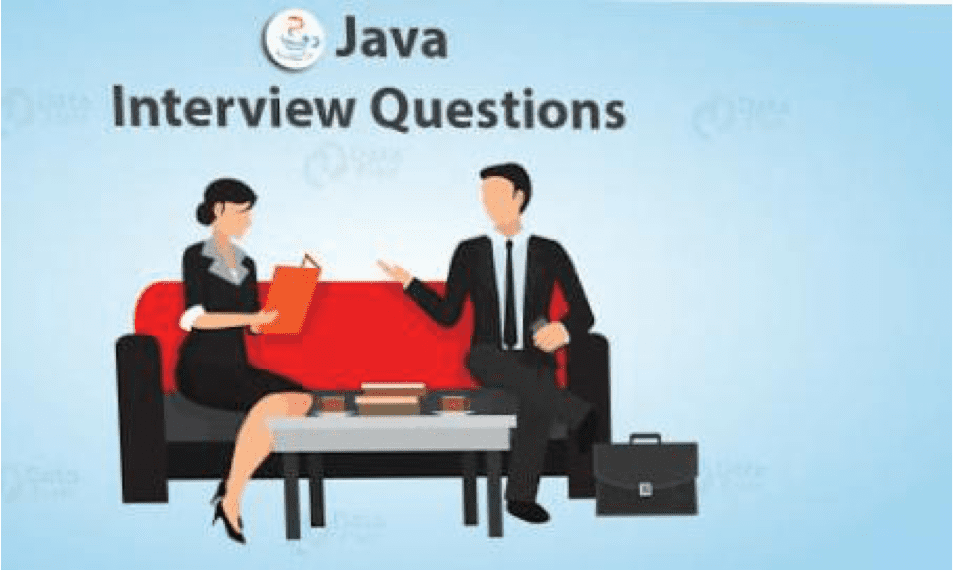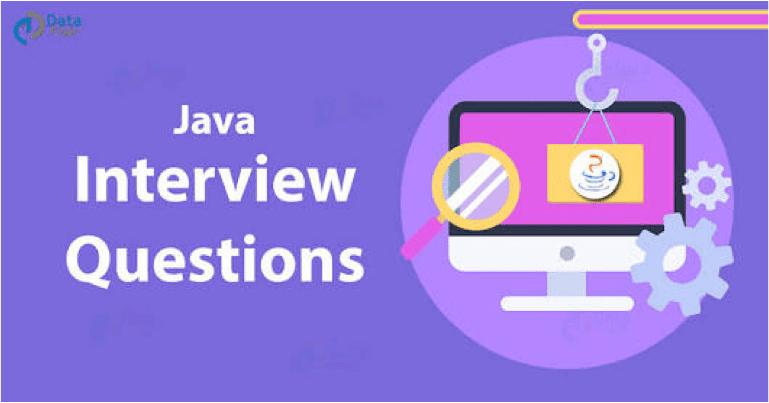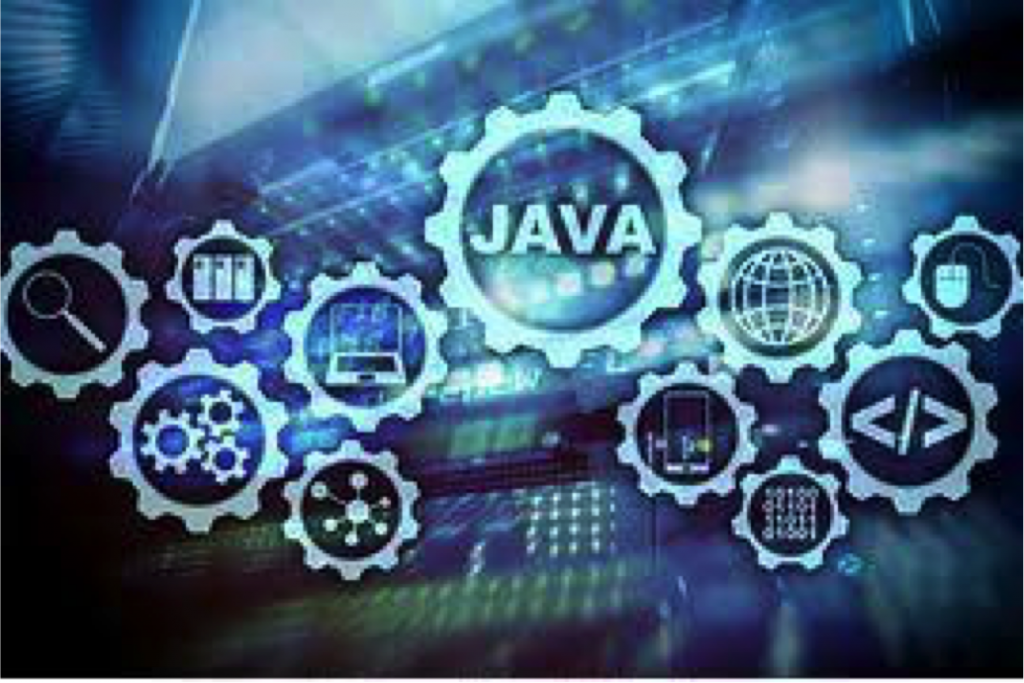Table of Contents
Java is one of the most trending and significant programming languages in the world. It is used to create web applications and platforms which are highly versatile. It’s mainly designed to provide flexibility. It is simpler to use and allow developers to write the code that would run on any machine, irrespective of architecture and platform. It is a very vast language and students need to learn and practice it widely by devoting a lot of time to write programs, testing them and fixing errors. Learning this language is very interesting and is like learning any high-level programming language involving critical skills. Apart from web programming, it is also used for developing and making standalone applications across platforms on servers, desktop and mobile devices. For every new project in companies being developed, they ask how they can use java to make their work easier and flexible. It helps in creating a better security model.

Most common Java Interview Questions
We will now discuss and cover all the relevant and significant questions asked in java interview which are suitable for freshers and experienced candidates for facing an interview. Our post will help you to understand the basic concepts and skills of java language for interview purposes. Java concepts are discussed here and explained widely to understand easily with the help of relevant examples.
Q-1. What is java?
Answer: Java can be defined as a high-level programming language discovered and developed by Sun microsystem. It is an object-oriented language to develop web applications. It’s demanded by most of the companies and organizations these days to work easier and with flexibility.
Q-2. What are the features in java?
Answer: Java consists of various features
- Simple
- Secure
- Portable
- Robust
- Multithread
- Platform independent
Q-3. What do you mean by java virtual machine?
Answer: It can be defined as the machine that enables or helps the computer to run the java program. Also called as JVM and acts like a run time engine which calls the main way or method present in the java code. Indeed, it is the specification that must be implemented in the computer system.
Q-4.What is JIT( just in time ) compiler?
Answer: Just in the compiler is mainly used in making better performance. It helps in decreasing the amount of time needed for compilation. Here, it means or refers to the translator from the instruction set of java virtual machine to the instruction set of specific CPU.

Q-5. How can you define a constructor?
Answer: When an object is created in a program, a constructor automatically gets called in corresponding to the class. It assigns the values. It is a method which has a similar name to the class name but a different number of arguments. It is created by default even if the user does not create its constructor simply. It can also be overloaded.
Q-6. What is a class?
Answer: A class is known as the blueprint of creating objects and is very important to understand in this high-level programming language. Class is mainly helpful in describing the object nature like it’s values, default value, behaviour. An object is a member of a class having a combination of data and procedures.
Q-7. What is an object in java?
Answer: It can be defined as an instance in a class created. The object has its value, states and behaviour. This is even one of the basic concepts of this language which revolves around the real-life entities or situations.
Q-8. What do you understand by OOPs concepts?
Answer: OOPs concepts include the below-mentioned features
- Inheritance: one class can extend to another class so that codes could be easily reused from one to another derived class.
- Encapsulation: It maintains the code and prevents the code from others.
- Polymorphism: it means many or a variety of forms. In this single object can refer to the superclass ( existing class) or subclass ( derived class) depending upon the reference type or form.
- Abstractions: is the process of hiding the specific details and showing only the important information to the user. It can be achieved properly in two ways either by abstract classes or interface.
Interface: it is a template comprising of only method declarations but not involving method implementations.
Q-9. What do you mean by overloading?
Answer: Overloading happens or occurs for a different class or within the same class. It usually happens or occurs when two or more number of methods in one class consist of the same method name but different parameters.

Q-10. Why java is not completely object-oriented / 100% object-oriented?
Answer: Java language is not completely object-oriented because it uses different forms of primitive data especially of eight types which includes Boolean, byte, char, int, float, double, long, short which are not an object.
Q-11. How would you distinguish between a local variable and an instance variable?
Answer: In this language, the local variable is generally used inside a method, constructor or block and has limited local scope. The main advantage of having this is that other methods are not even aware of those variables it can be used within the scope of the block only.
Instance variable has its significance. They are declared in class but outside the method, constructor or any block. They are proportional to the object. Instance variables are created when an object is created and destroyed when an object is destroyed.
Q-12. What do you call wrapper class in java?
Answer: The wrapper class in java is mainly responsible for conversions. It covers the java primitives into reference type objects. Every primitive data type consists of a class allocated or dedicated. These are only called as wrapper classes because they wrap the primitive data type into an object of that class.
Q-13. What do you understand by a package in java? Mention it’s advantages?
Answer: Packages in java can be defined as related classes and interfaces which are combined or bundled together. It helps developers in optimizing the reuse and maintaining of the code. Advantages are listed down
- It helps in avoiding the name clashes which is very important to do.
- Supports the easier access control on code.
- Maintains well hierarchical structure which usually makes it better and easy to locate the related classes.
Q-14. What is a classloader in java?
Answer: It is a subset of java virtual machine that is responsible for loading the class files. It is loaded by the class loader in a case of execution of java program. There are mainly three types of class loaders
- Bootstrap classloader
- Extension class loader
- Application class loader
Q-15. What do you understand by a map in java language?
Answer: Map in java is an object which maps the keys to values. It cannot contain duplicate keys at all. Each key has the limit to map to at most one value. There are three general-purpose or types of maps used
- Hash Map
- Treemap
- Linked Hash map
Q-16. Why it is said that java objects are immutable?
Answer: Java objects are immutable because if string objects are created once, its state cannot be changed or modified. It. Creates a new string object if you try to post or update the value of that object instead of updating the values of the specific object to be put. This important feature of java increases security, cache, synchronization and performance.

Q-17. How would you define an infinite loop in java?
Answer: Infinite loop can be defined as an instruction sequence in java language that loops endlessly. It occurs whenever a functional exit is not met. This loop is a consequence of any programming error or a deliberate action based upon the application behaviour. It automatically terminates or ends as the application gets exit.
Q-18. What do you mean by java string pool?
Answer: Java string pool is a collection of strings which are available or stored in heap memory.
Whenever a new object creation exists, so this is used to check whether the object already is present or not and it works accordingly. If it is already available, then the same reference is returned to the variable otherwise a new object is created in the string pool and that specific reference will be returned.
Q-19. What do you know about the association?
Answer: Association is a relationship or bonding without an owner. In this, everyone has their way of working, preferences and lifecycle. It is like a relation between student and teacher. At a time, one teacher can teach multiple students, one single student can learn or associate with multiple teachers. But, here there is no ownership between both objects. These relationships can be in terms of one to one, one to many, many to many, many to one.
Q-20. What is the meaning of aggregation in java?
Answer: An aggregation is a specialized form of association term where all the objects have their way and lifecycle but there exists the term ownership. This is the way that child object can not belong to another parent object. An example can explain it better: one teacher cannot belong to many different departments or multiple departments, but if we remove the department teacher then the object will not destroy.
Q-21. What is meant by composition in java?
Answer: This is also another form of above-mentioned terms. It’s a specialized form of Aggregation and is known as the “death” relationships and is a very strong type. In this child, an object is not recognized by their lifecycle and if parent object deletes or removes then all child object will also be destroyed. An example of house and room can be given here: Rooms are part of our homes, they cannot exist independently. If we delete the home, so rooms will automatically be ended because they do not have their lifecycle.
Q-22. What do you understand by marker interface?
Answer: Marker interface means interface having no data member and member functions. In other words, space can also be called a marker interface. Serializable and cloneable are the most relevant examples of this.

Q-23. How would you define object cloning in java?
Answer: Object cloning is the procedure of creating an exact copy of an object and is an important part to understand. It can also be defined as the ability to create an object with a similar state as of original object. For this purpose, the clone() way or method of an object clone is used to clone an object and it’s a protected method, thus one needs to override it.
Q-24. What is the meaning of copy constructor in java?
Answer: Copy constructor can be defined as the member function that is used to start or initialize an object by using another object of the same class. Although, it is not needed much in this language as all the objects are passed by reference and java does not even support automatic pass by a value system.
Q-25. What do you know about the request dispatcher?
Answer: Request dispatcher is a very significant term to know. It is used to forward the request to another source that can be HTML ( HyperText Markup Language) or any other servelet in a similar application. It can also be used to add or include the content of another resource to the response.
Q-26. Explain the concept of priority queue?
Answer: Priority queue also known as fringe is completely based on a priority heap. The main use of this is to keep track of unexplored routes, the highest priority is achieved for the one which a lower bound on the complete path length is smallest. It does not allow null items.
Q-27. Mention one advantage and disadvantage of the java language?
Answer: The java language is so essential part nowadays of a programming language as we can see that it includes various functions and methods which are worldwide popular.
Advantage: It supports the data to be stored and restored easily. Indeed, it is multi-threaded which means the program is capable to perform several tasks simultaneously within a program.
Disadvantage: it consumes more memory than the other compiled languages like C or C++.
So, we covered a set of questions that are very important for facing an interview with various MNCs.On the whole, the java language holds a great significance in making a career in the information technology sector. It is even being used by Google to develop applications and for better security models. Grasping the above-mentioned concepts is the key to understand the basics of java and its working methods. Java is considered to be one of the stable programming languages. Each edition comes in an advanced form with added features and better performance. Java language is platform-independent and is mature. It supports the internet of things. It is capable of simplifying the improvement of custom big data solutions. Java is used by more than 64000 companies only in the United States which is a clear indication of it’s a success. There are so many leading companies making use of this language and are based on java. Below is the list of some companies
- Spotify
- Uber
- eBay
- Groupon
- Pandora
So, we conclude that this wonderful language supports lots of developer for making web applications and mobile apps. The frameworks and some development tools of java contribute a lot towards making it the most prominent language in the world. Along with that, the language is very flexible and versatile which makes it a general-purpose programming language.
Also Check:








![Top 10 Python Tutorials on YouTube for Beginners: 2024 [Updated]](https://hh-certificates.sgp1.digitaloceanspaces.com/blog/wp-content/uploads/2020/11/16133042/pasted-image-0-8-270x180.jpg)
.webp)
